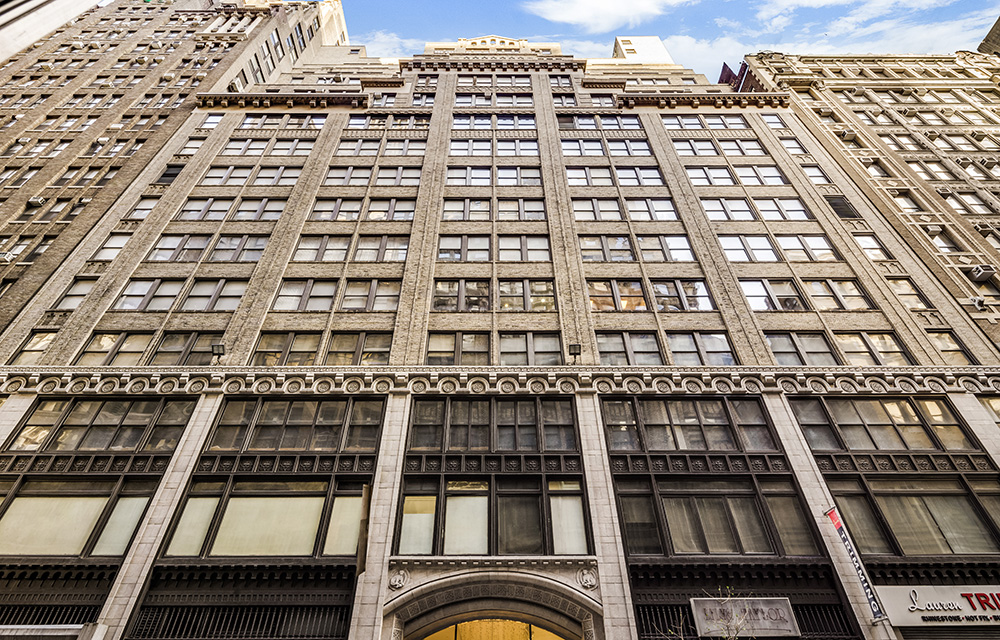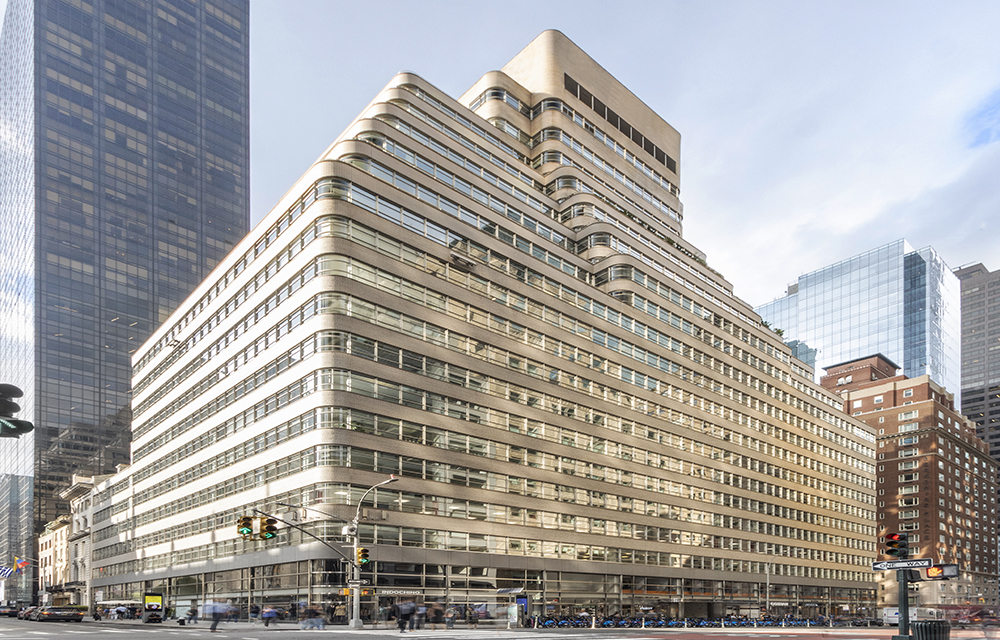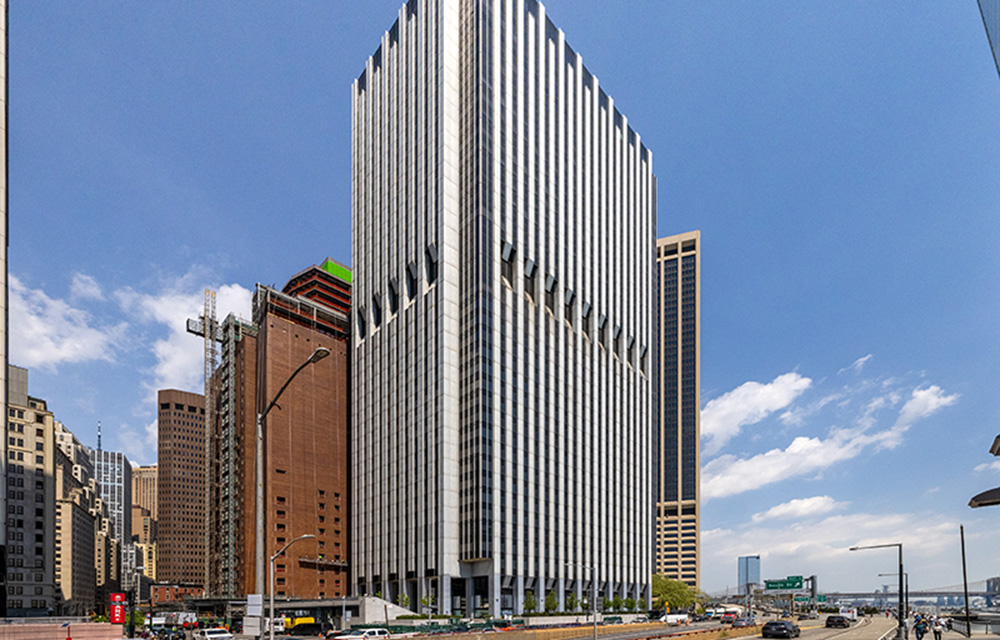News:
Brokerage
Posted: November 26, 2007
Midtown Plaza: Old mall will make way for new high rise building and create new opportunities
On October 16, NYS governor, Eliot Spitzer, city of Rochester, mayor, Robert Duffy, and PAETEC Holding Corp. chairman of the board and chief executive office, Arunas Chesonis, announced plans to bring PAETEC's world headquarters to heart of downtown Rochester. PAETEC, one of the largest and fastest growing telecommunications companies in the U.S., has outgrown its Perinton location and plans to construct a state of the art, 500,000 s/f, high-rise building in the city's central business district. The new class A facility will be built on a portion of property currently occupied by a 1.4 million s/f retail-commercial mall complex known as Midtown Plaza. The city is acquiring the Midtown Plaza properties, and with funding assistance from Empire State Development, initiating plans for demolition of the buildings to accommodate the PAETEC project.
Midtown Plaza was once the retail center for the Rochester region. The complex opened in 1962 as the nation's first fully enclosed downtown mall. This pioneering development included a 1,820 space underground parking garage, hotel, office buildings, retail shops and restaurants, and covered 8.6 acres of prime downtown real estate.i Midtown remained a popular and vibrant destination point through the late seventies. By the eighties however, Midtown could no longer compete with the newer, spacious, suburban malls. Finally, by 1995, Midtown's three anchor stores (McCurdy's, B. Foreman, and Wegmans Food Market) closed. Today, Midtown Plaza has over 1 million s/f (86%) of vacant space.
Over the past 20 years, the city and the various Midtown Plaza owners have tried to revitalize the complex. While much of downtown has been experiencing resurgence in investment for market-rate housing for empty nesters and young professionals, restaurants, and entertainment uses, Midtown has been left out of the renaissance. The city included the properties in the NYS Empire Zone in 2002 in hopes of attracting investment to no avail. The inefficient building configurations and floor sizes have made it a challenge to attract the types of anchor tenants needed to revitalize the aging complex. Further complicating these efforts was the cost to renovate the buildings. Extensive asbestos contamination is present through-out the 1.4 million s/f building area. A study commissioned by the city in 2006, estimated that the cost to remove the asbestos alone was over $40 million. In addition, it was estimated that renovations and building system replacements would cost another $100 million, just to get the property in a state for tenant build-outs. The study also estimated the cost for total demolition (and asbestos removal) of the six buildings encompassing the site of approximately $54 million.
In 2006, the city was approached by the Province of Parma, Italy, to create an Italian shopping experience in a portion of the Midtown Mall area. The plan was for the Parma government to bring over authentic Italian businesses to sell Parma products and merchandise. It seemed that finally, an answer to the Midtown problem had been found. In anticipation of the city's purchase of the Midtown properties to facilitate the Parma project, an Urban Renewal District was created around the properties. To allow portions of the property to be conveyed to a developer at below market value. Ultimately, the deal with the Parma government and the associated developer never materialized. This was mainly due to the fact that there was a change in the Italian government leadership.
The city was again left without any viable options to revitalize this large expanse of buildings in the core area of its business district. Contributing to the problem was the effect Midtown was having on nearby property values. Assessments of class A office buildings around Midtown Plaza were decreasing. This was directly attributable to the blighting effects of Midtown Plaza. The city saw that the only viable alternative to the eventual revitalization of the 8.6 acre Midtown complex would involve its demolition.
In July, Chesonis approached the city with an offer to invest in the city if a "shovel-ready" site was made available at Midtown. PAETEC would move into the new building sometime in 2011 and, by that time, would bring an estimated 1,200 jobs to their new corporate headquarters location with room to grow. PAETEC would invest between $50-$100 million in the project and would forever change the face of the city's skyline. The mayor immediately contacted the governor to illicit the state's help in raising funds for the demolition and site preparation. The governor responded with a pledge to provide up to $65 million for asbestos removal and demolition. The pledge was introduced as part of the governor's series of "City-by-City" plans which are part of an overall upstate agenda to focus the state's resources on assisting each region's unique potential to spur additional private investment and job creation.
This development presented an unprecedented opportunity for the city to build upon. The remaining acreage not occupied by PAETEC will be offered for sale, by the city, through a competitive process for development opportunities to the private sector. Already, the city has been approached by a number of developers interested in purchasing parcels that will come onto the market in the next several years.
In order to meet PAETEC's goal of moving into their new building in mid 2011, the city and state have set forth an aggressive schedule for the project. The city will acquire the properties in early 2008 through negotiation or condemnation. The city is currently soliciting proposals from consultants to assist with the preparation of a redevelopment plan for the properties and an Environmental Impact Statement for the required State Environmental Quality Review. Another request for proposals will be issued in the next several weeks to hire a consultant that will assist with asbestos surveying and removal, demolition planning and oversight. It is anticipated that actual building demolition of building will commence in January, 2009.
The community has fond memories of Midtown Plaza, especially during the holiday season when, during its heyday, thousands of children would visit the mall to see "Santa's mountain or ride the monorail. Although we are sad to see Midtown go, it is the general consensus that its time has come. The old mall will make way for a new high-rise building and create new opportunities for those that want to invest in the city. "This landmark project will provide immeasurable benefits for generations to come as it will transform the landscape of our downtown," said Duffy.
Foot Notes: i. A five-minute film was produced in 1963 by the Rochester Gas & Electric Corp. about Midtown Plaza. The film offers an interesting perspective of this "new" urban mall concept and shows vintage Midtown Mall footage. The film is available for viewing at YouTube.com at http://www.youtube.com/watch?v=LtG2CfAwMGE.
Carlos Carballada is the commissioner of economic development in Rochester, N.Y.
Tags:
Brokerage
MORE FROM Brokerage
Meridian Capital Group arranges 10-year retail lease for Mess at 236 West 10th St.
Manhattan, NY According to Meridian Capital Group, Jordan Langer, Noam Aziz and Carson Shahrabani of the firm’s retail leasing team have arranged a five-year lease at 236 West 10th St. in Greenwich Village

Quick Hits
Columns and Thought Leadership

Lasting effects of eminent domain on commercial development - by Sebastian Jablonski
The state has the authority to seize all or part of privately owned commercial real estate for public use by the power of eminent domain. Although the state is constitutionally required to provide just compensation to the property owner, it frequently fails to account

Behind the post: Why reels, stories, and shorts work for CRE (and how to use them) - by Kimberly Zar Bloorian
Let’s be real: if you’re still only posting photos of properties, you’re missing out. Reels, Stories, and Shorts are where attention lives, and in commercial real estate, attention is currency.

AI comes to public relations, but be cautious, experts say - by Harry Zlokower
Last month Bisnow scheduled the New York AI & Technology cocktail event on commercial real estate, moderated by Tal Kerret, president, Silverstein Properties, and including tech officers from Rudin Management, Silverstein Properties, structural engineering company Thornton Tomasetti and the founder of Overlay Capital Build,

Strategic pause - by Shallini Mehra and Chirag Doshi
Many investors are in a period of strategic pause as New York City’s mayoral race approaches. A major inflection point came with the Democratic primary victory of Zohran Mamdani, a staunch tenant advocate, with a progressive housing platform which supports rent freezes for rent








.jpg)

.gif)